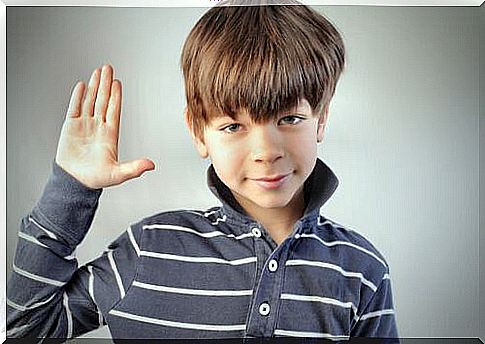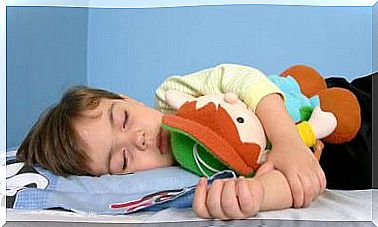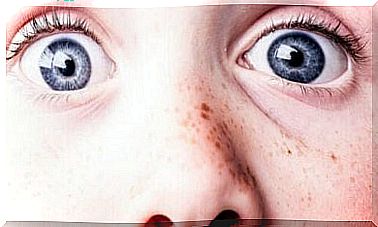How Do We Know If Our Child Is Telling A Lie? – Being Parents

Why a child is lying is perhaps one of the most common questions parents ask. No matter how many adults we are, we are not infallible and we don’t have a polygraph in us to find out the whole truth.
As we get older each year, it is much more difficult to spot our children’s lies. How do we know if our child is telling a lie?
The lies of children are due to two effects : the first is that the children have learned the wisdom of what they should tell their parents so as not to alarm them. The second is that most parents have a biased view of their children.
Now, there are some tips that might help us reveal what our kids have come up with to get by. Everything will depend on our observation, our intuition and a little logic.
The physical signs of lying
Telling a lie involves psychophysiological processes and mental dexterity. Adults are accustomed to its use and can better control their gestures so as not to be discovered. But in children, this self-control costs more.
Indeed, when a child lies, he tends to sweat, tremble and confuse certain words. In these cases, we get hasty responses, as children try to react quickly and think at the same time.
We may also notice gestural changes that are not normal in them. By being careful, you can see them lying. You will have to appeal to the knowledge that we have on the recurring gestures of children.
How do I know if my child is telling a lie?
Lying is an argumentative process and, as it takes place in the midst of a complex emotional moment, it generates failures. Repeating sentences and words is one of the most common practices for a child who is lying. But there are other patterns that we need to look at.

For example, when a child gives too many details about an event, it is quite possible that he is lying to us. It is normal that he believes that giving more data is synonymous with reliability; in any case, it is up to us to review the logic of its history.
The typical “I didn’t do it”, when we haven’t yet accused him of anything, is also very recurrent. This attitude reveals the unease and unnaturalness with which the child reacts to something that has happened. These are unsolicited excuses that give us the information we are looking for.
Types of lies
Another important aspect in analyzing our children’s behavior is the type of lie they tell us. As we already know, there are “pious”, whimsical lies and half-truths. In the latter case, children tend to manipulate the truth out of interest.
Usually, pious lies are malicious and with them we can measure the low severity of an event. Instead, we’ll need to be very meticulous when considering the arguments for an exaggerated lie or a half-truth.
In short, we cannot act the same in the face of different kinds of lies and hidden events. It’s not the same having eaten too many cakes as having a child run away from home to go to the park. All of these aspects will help us uncover what is going on.
My child tells lies, how to react?
Those who wonder “how do I know if my child is telling lies?” should understand that this is the most important way to deal with the situation. Better than being moral inquisitors, we need to analyze the human component of deception. In fact, it is a resource used by adults.
What should be of concern to us are repetitive behaviors, manipulation, and the naturalness with which children lie. If, as parents, we tend to lie in different situations… what can we expect from our children? Therefore, every situation and every lie must be fully analyzed.

On the other hand, the moral education of our children must be based on genuine honesty. This implies another thing: not to educate in fear and manipulation and to prioritize positive reinforcements.
We must act as parents who listen to the truth
In many cases, lying becomes the reaction to possible harm. Therefore, and above all, we must be parents prepared to listen to the truth.
Exaggerated reprimands and intolerance will only generate more deception. Tolerance always generates positive consequences, so it is better to bet on it.









